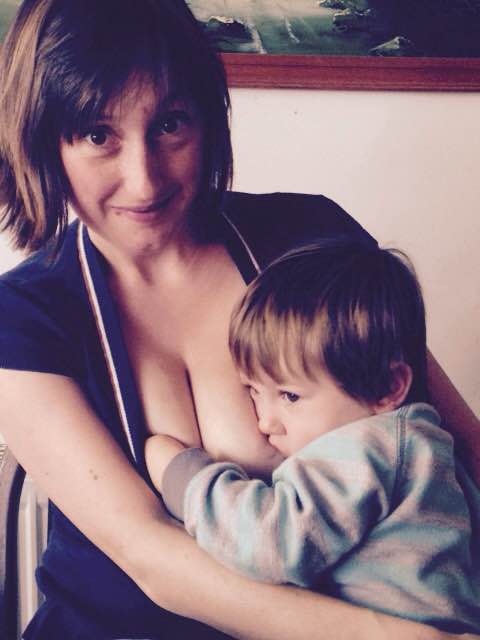Tips for Gently Weaning Your Toddler

How long to nurse your baby or toddler is a very personal, individual decision. And it’s a choice only you can make—not your friends, your breastfeeding helpers, your mother, or your partner. You know yourself and your child. You know your day-to-day life. You know what it feels like to nurse. You know how much your child needs nursing, and in what ways.
You might decide you want to nurse your child until he or she naturally weans. Or you may be ready to wean your child now. Even if you feel very ready to wean your toddler, you might still feel conflict about it. That’s OK, and it’s normal. Or you might also feel entirely ready. That’s great too!
The most important thing to keep in mind is this: take weaning slowly. I know it might seem like the easiest route would be to just get it done as soon as possible to spare anyone too much heartache. But there are a few reasons why it’s really important to do it slowly (unless, of course, you need to wean in an emergency situation, like for cancer treatment, or military deployment).
There are two reasons to take it slow. First, you need to give time to let your body adjust to the changing hormones. I have seen too many women fall into deep depressions after abrupt weanings. And yes, it can even happen in the toddler/child stage. Every time you nurse, “feel good” hormones are released (oxytocin and prolactin), and to stop the flow of them abruptly can be a jolt to your system. Other hormonal changes happen after weaning, and mothers who didn’t have their periods back will be flooded with the hormones of the menstrual cycle.
The other reason to take it slow is that you want your toddler to have time to adjust. Even if you are only nursing a few times a day, your toddler really relies on nursing for soothing (and perhaps a small meal or a few snacks). You want to give your child time to get used it the new routines and the new comforts (which I will discuss soon). If you find that your toddler is acting out more than usual during the weaning process, it might be a clue that you need to scale back and take it slower.
Here are some practical things to do to drop the nursing sessions. I will give you several ideas, but you need to find the ones that work for you, and of course tailor them to your child’s needs. These are probably most appropriate for verbal kids (18 months or more).
- Drop one session at a time. Pick the one that feels easiest to let go first. Or maybe the one that feels hardest. Either way, give yourself and your child at least a week to adjust to the change before you move onto another session.
- Gradually decrease the amount of time you nurse until the session is dropped. Some mothers will sing a song (like the ABC’s) and tell their child that they will stop nursing when the song is over. Others will count. The idea is that your child will learn that your nursing sessions have a defined ending time. You can shorten the amount of time nursing until the session is gone.
- Come up with some alternative soothing methods, name them, and use them consistently in place of nursing. Maybe you and your child have a special way of cuddling. Maybe your child likes to play with your hair while falling asleep. Most kids have special ways of connecting physically besides (or during) nursing. Play those up while weaning. Name them, and have your child begin to replace nursing with them. After weaning, you child will still need physical comfort from you, just without nursing, so help guide your child toward that.
- Remember that it may not be a straight line. Weaning might be going well and then your child will desperately need to nurse one afternoon. That’s OK. It’s not going to be a linear process. It’s OK to go back a few steps to reassure your child. You can still move forward shortly after that.
- Ask for help, especially in the middle of the night. If there is someone in your life who you love and trust (a partner or a grandparent perhaps), employ their help. Middle-of-the-night weaning is especially difficult to do alone. Some mothers find that their partner can successfully take over nighttime soothing during the weaning process.
- Keep extra drinks and snacks around. You might not think your toddler gets a lot of milk, but be warned: he or she will be thirstier and probably a little more hungry as you wean. Keep water near your bed, and extra healthy snacks around during the day.
- Give your child extra love, extra attention, and gratitude. It’s an adjustment for both of you. Give your relationship with your toddler some extra time and attention. And if your child can understand, thank him or her for being understanding as you nurse less.
For some mothers, just dropping the most annoying nursing sessions is enough. You might end up finding that full weaning isn’t necessary, and cutting back helps tremendously. But you may just want to be fully done. Either way, be kind to yourself and your child, and pat yourself on the back for a job well done.
Photo Credit: Carmen Pagor, IBCLC. Follow Carmen on Facebook at Beyond Milk.
***
Need some with weaning? Schedule a virtual lactation consultation with me.
